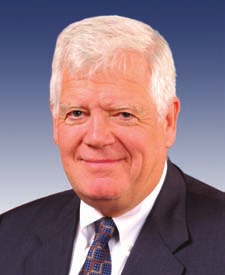I’m almost a week late on this (hey, I’ve been on vacation), but I want to shed a little positive light on Washington congressman Jim McDermott’s new carbon pricing legislation.
It’s more than a little refreshing to see that at least one member of the Northwest’s congressional delegation is still working hard to put a firm limit on US carbon emissions. It’s also nice to see that the so-called “fee and dividend” approach is still alive.
Under McDermott’s plan, which he calls a “managed carbon price,” the Treasury would set up a carbon fee to be levied on emissions. The proceeds would then be divvied up with 25 percent set aside for reducing the federal deficit and 75 percent returned directly to legal US residents as a per capita dividend. (More details are here and here.)
There’s a lot to like about this approach, not least of which is the fact that it provides Americans with a direct financial stake in reducing carbon.
It’s very similar to legislation he introduced in 2009 that would have taken a “managed price” approach to cap and trade. Although McDermott seems at pains to stress that his 2012 legislation is different from—and superior to—a carbon tax, it is in fact basically just a carbon tax. Once you get past some of the confusing terminology, a managed carbon price effectively operates just like a tax that is periodically adjusted to achieve predetermined reductions in emissions.
To understand how a managed price approach works, please see my two forays into the subject, “The Managed-Price Approach to Cap and Trade” and “Is Managed-Price Cap and Trade Different From a Carbon Tax?“


Comments are closed.